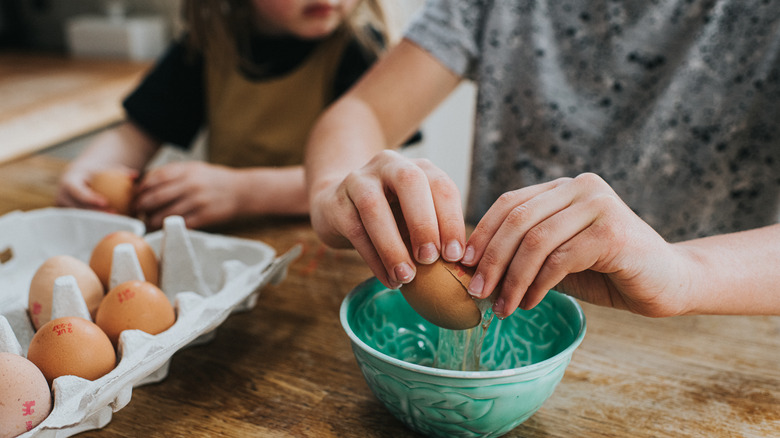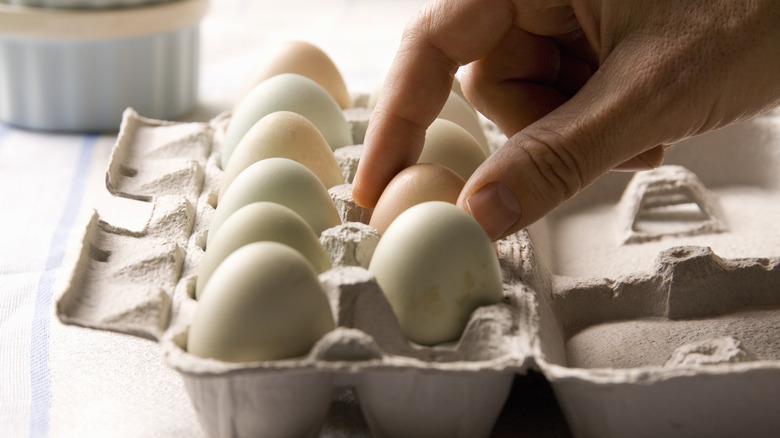How Long You Can Safely Leave Eggs Out At Room Temperature
It's early morning and you've scrambled up a couple of eggs to go with that blessed eye-opener, coffee. Somehow, you forgot to return the egg carton to the fridge and it's still sitting out after breakfast. Or perhaps you're leaving a few eggs on the counter to warm to room temperature for a clever upgrade to your chocolate chip cookie batter. Whatever the case, the question is, are the eggs that have been sitting out still safe to eat?
The good news is eggs can sit out for quite a while before you need to worry: two hours, to be precise, according to the USDA. The bad news is you'll need to be careful not to leave them out of the fridge for longer, as harmful bacteria can penetrate eggshells and quickly propagate in warm eggs, risking illness. The USDA notes that various factors can impact the two-hour guideline, including how the eggs were stored and prepared before you bought them, whether they're raw or hard-boiled, and whether you've washed them. Since most farms and retail stores in the U.S. are careful about egg handling and storage, condition questions prior to setting them on the counter are largely related to how they're treated once they leave the store. As a rule, eggs should be refrigerated as soon as you get home from grocery shopping to prevent early spoilage. Remember to wash your hands whenever handling raw eggs as well.
Why 2 hours is the limit for leaving eggs out
Confusingly, not all eggs are treated the same way. USDA-graded eggs sold in the United States must be washed and processed according to FDA regulations. Unfortunately, this process removes a natural protective coating from the egg, thus requiring refrigeration. In the U.K. and many other countries (and with many small farmers), they are either unwashed or wiped clean without water. These eggs can be stored, unrefrigerated, in a cool, dry spot for two to three weeks. Give unwashed eggs a quick rinse in warm water immediately before using.
For refrigerated eggs, condensation (sweat) can form as they warm up and the porous shells can draw moisture into the egg. If Salmonella or other harmful bacteria are present, they can enter the egg with the water. This is why the USDA also recommends against washing eggs that don't have the protective natural coating. Additionally, cold water actively helps eggs suck in moisture. So when washing off any residue or immersing them in water to bring them to room temperature for better fried eggs, use warm (but not hot) tap water.
The two-hour limit for leaving eggs out applies to both raw and hard-boiled eggs. However, it's worth noting that hard-boiled ones can spoil faster and should be refrigerated within two hours of cooking. They'll last about a week in the fridge, but you're still good to let them warm back up for a couple of hours if needed.

